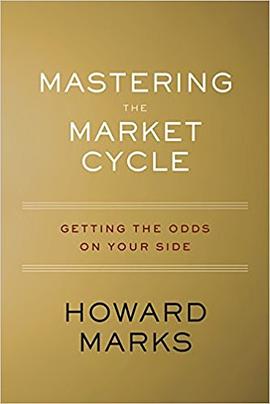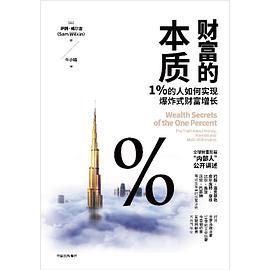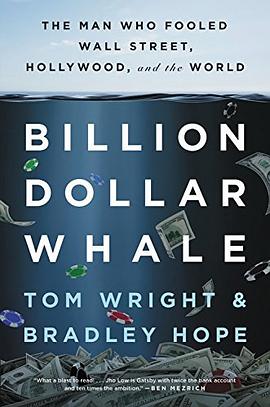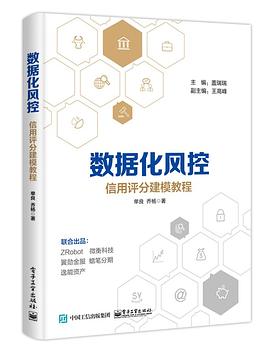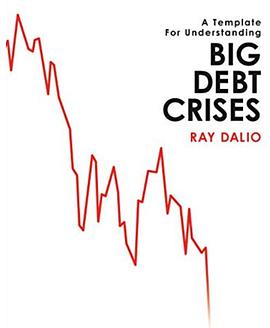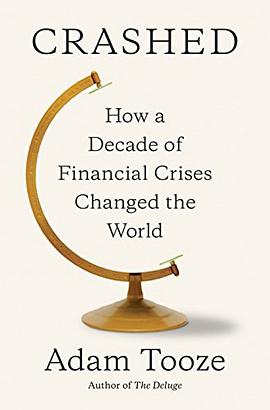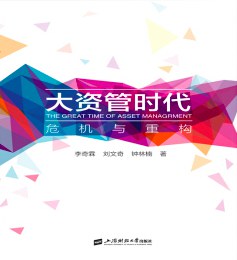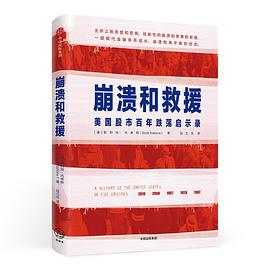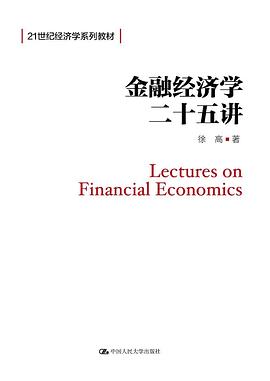Big Debt Crises pdf epub mobi txt 電子書 下載 2025
圖書介紹

發表於2025-05-03
Big Debt Crises epub 下載 mobi 下載 pdf 下載 txt 電子書 下載 2025
相關圖書
Big Debt Crises epub 下載 mobi 下載 pdf 下載 txt 電子書 下載 2025
Big Debt Crises pdf epub mobi txt 電子書 下載
具體描述
Ray Dalio is the founder, Co-Chief Investment Officer and Co-Chairman of Bridgewater Associates. Bridgewater is a global asset manager and leader in institutional portfolio management as well as the largest hedge fund in the world. Under Ray s guidance, Bridgewater has developed a distinctive culture, an idea-meritocracy that produces meaningful work and meaningful relationships through radical truth and radical transparency that is the foundation of the firm s success. Since starting Bridgewater out of his two-bedroom apartment in New York in 1975, Ray has grown the firm into the largest hedge fund in the world, the 5th most important company in the U.S. according to Fortune Magazine, and has led it to make more money for clients than any other hedge fund since its inception, according to LCH Investments. For his innovative work as well as being a valued advisor to many global policy makers, Ray has also been called the Steve Jobs of Investing by CIO Magazine and Wired Magazine, and been named one of TIME Magazine s 100 Most Influential People. Over the past three decades, he wrote down his decision-making criteria and has recently passed along his principles and tools through his book, Principles: Life & Work, a New York Times #1 Bestseller and Amazon #1 Business Book of 2017.
"Ray Dalio's excellent study provides an innovative way of thinking about debt crises and the policy response." - Ben Bernanke
"Ray Dalio's book is must reading for anyone who aspires to prevent or manage through the next financial crisis." - Larry Summers
"A terrific piece of work from one of the world's top investors who has devoted his life to understanding markets and demonstrated that understanding by navigating the 2008 financial crisis well." - Hank Paulson
"An outstanding history of financial crises, including the devastating crisis of 2008, with a very valuable framework for understanding why the engine of the financial system occasionally breaks down, and what types of policy actions by central banks and governments are necessary to resolve systemic financial crises. This should serve as a play book for future policy makers, with practical guidance about what to do and what not to do." - Tim Geithner
On the 10th anniversary of the 2008 financial crisis, one of the world's most successful investors, Ray Dalio, shares his unique template for how debt crises work and principles for dealing with them well. This template allowed his firm, Bridgewater Associates, to anticipate events and navigate them well while others struggled badly.
As he explained in his #1 New York Times Bestseller, Principles: Life & Work, Dalio believes that most everything happens over and over again through time so that by studying their patterns one can understand the cause-effect relationships behind them and develop principles for dealing with them well. In this 3-part research series, he does that for big debt crises and shares his template in the hopes reducing the chances of big debt crises happening and helping them be better managed in the future.
The template comes in three parts provided in three books: 1) The Archetypal Big Debt Cycle (which explains the template), 2) 3 Detailed Cases (which examines in depth the 2008 financial crisis, the 1930's Great Depression, and the 1920's inflationary depression of Germany's Weimar Republic), and 3) Compendium of 48 Cases (which is a compendium of charts and brief descriptions of the worst debt crises of the last 100 years). Whether you're an investor, a policy maker, or are simply interested, the unconventional perspective of one of the few people who navigated the crises successfully, A Template for Understanding Big Debt Crises will help you understand the economy and markets in revealing new ways.
Big Debt Crises pdf epub mobi txt 電子書 下載
用戶評價
##囫圇吞棗的第一遍
評分 評分 評分 評分##魏瑪共和國和29年大蕭條的例子非常清晰。學瞭這麼多年二戰史,竟然是看瞭dalio的書之後纔終於明白瞭一直不明白的事。算是一個意外的收獲。在理論方麵,dalio的模型其實沒有什麼特殊的。隻是更量化統一的說明瞭,在危機時放水時必須的,貨幣貶值是必須的。其他的道德和政治爭議,比如放水是不是便宜瞭黑心資本傢,比如說是不是要給政府或銀行一個教訓,這些爭論都要往後放。因為在當下,這些因素都隻會讓經濟每況愈下,無法迴復。但他整理的曆史也側麵說明瞭,在真實世界裏,做“正確的放水決定”是很睏難的,政策執行人常常會反復,所以一旦進入危機周期,每一次不徹底的政策帶來的部分反彈,都難掩整體的下行趨勢。
評分 評分 評分Big Debt Crises pdf epub mobi txt 電子書 下載
分享鏈接


相關圖書
-
 Mastering the Market Cycle pdf epub mobi txt 電子書 下載
Mastering the Market Cycle pdf epub mobi txt 電子書 下載 -
 互聯互通的金融大時代 pdf epub mobi txt 電子書 下載
互聯互通的金融大時代 pdf epub mobi txt 電子書 下載 -
 客戶的遊艇在哪裏 pdf epub mobi txt 電子書 下載
客戶的遊艇在哪裏 pdf epub mobi txt 電子書 下載 -
 對衝基金怪傑(典藏版) pdf epub mobi txt 電子書 下載
對衝基金怪傑(典藏版) pdf epub mobi txt 電子書 下載 -
 財富的本質 pdf epub mobi txt 電子書 下載
財富的本質 pdf epub mobi txt 電子書 下載 -
 巴菲特緻股東的信·投資原則篇 pdf epub mobi txt 電子書 下載
巴菲特緻股東的信·投資原則篇 pdf epub mobi txt 電子書 下載 -
 Billion Dollar Whale pdf epub mobi txt 電子書 下載
Billion Dollar Whale pdf epub mobi txt 電子書 下載 -
 發現價格 pdf epub mobi txt 電子書 下載
發現價格 pdf epub mobi txt 電子書 下載 -
 中國溢價:透視中企海外並購 pdf epub mobi txt 電子書 下載
中國溢價:透視中企海外並購 pdf epub mobi txt 電子書 下載 -
 數據化風控 pdf epub mobi txt 電子書 下載
數據化風控 pdf epub mobi txt 電子書 下載 -
 貨幣與信用理論 pdf epub mobi txt 電子書 下載
貨幣與信用理論 pdf epub mobi txt 電子書 下載 -
 A Template For Understanding BIG DEBT CRISES pdf epub mobi txt 電子書 下載
A Template For Understanding BIG DEBT CRISES pdf epub mobi txt 電子書 下載 -
 泡沫的鼻祖 pdf epub mobi txt 電子書 下載
泡沫的鼻祖 pdf epub mobi txt 電子書 下載 -
 Crashed pdf epub mobi txt 電子書 下載
Crashed pdf epub mobi txt 電子書 下載 -
 大資管時代 pdf epub mobi txt 電子書 下載
大資管時代 pdf epub mobi txt 電子書 下載 -
 他是賭神,更是股神 pdf epub mobi txt 電子書 下載
他是賭神,更是股神 pdf epub mobi txt 電子書 下載 -
 崩潰和救援 pdf epub mobi txt 電子書 下載
崩潰和救援 pdf epub mobi txt 電子書 下載 -
 創新的資本邏輯 pdf epub mobi txt 電子書 下載
創新的資本邏輯 pdf epub mobi txt 電子書 下載 -
 羅斯柴爾德傢族 pdf epub mobi txt 電子書 下載
羅斯柴爾德傢族 pdf epub mobi txt 電子書 下載 -
 金融經濟學二十五講 pdf epub mobi txt 電子書 下載
金融經濟學二十五講 pdf epub mobi txt 電子書 下載


